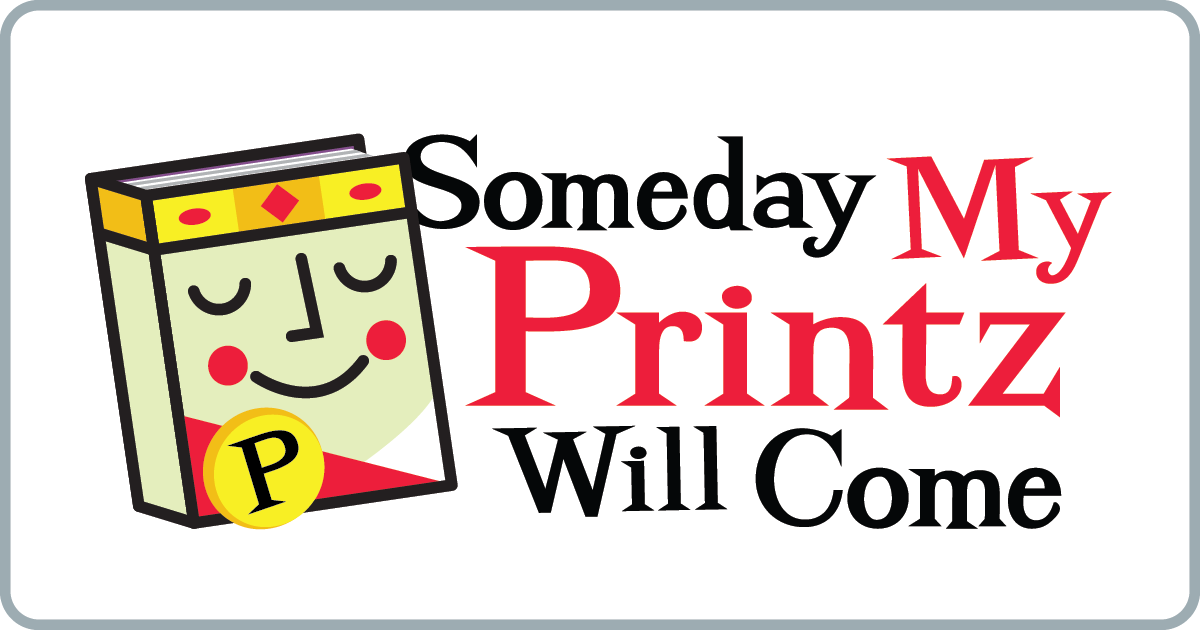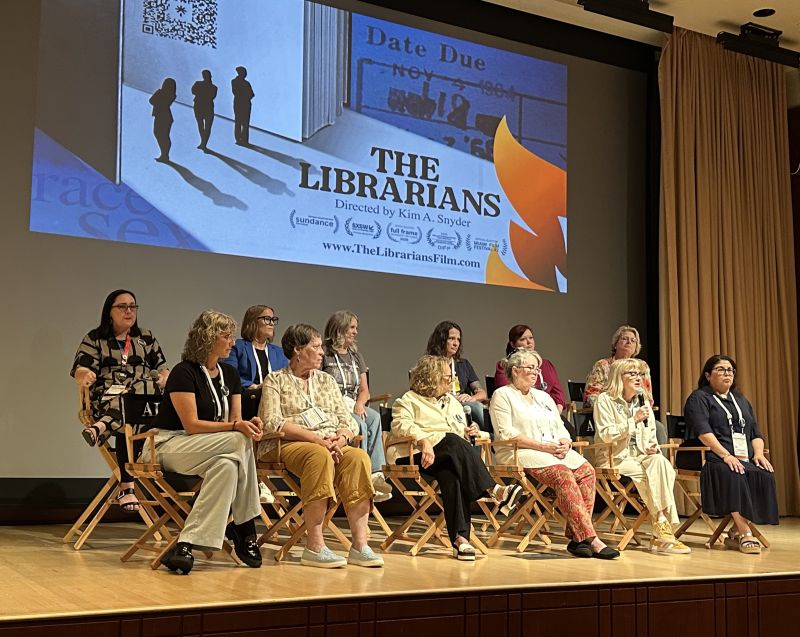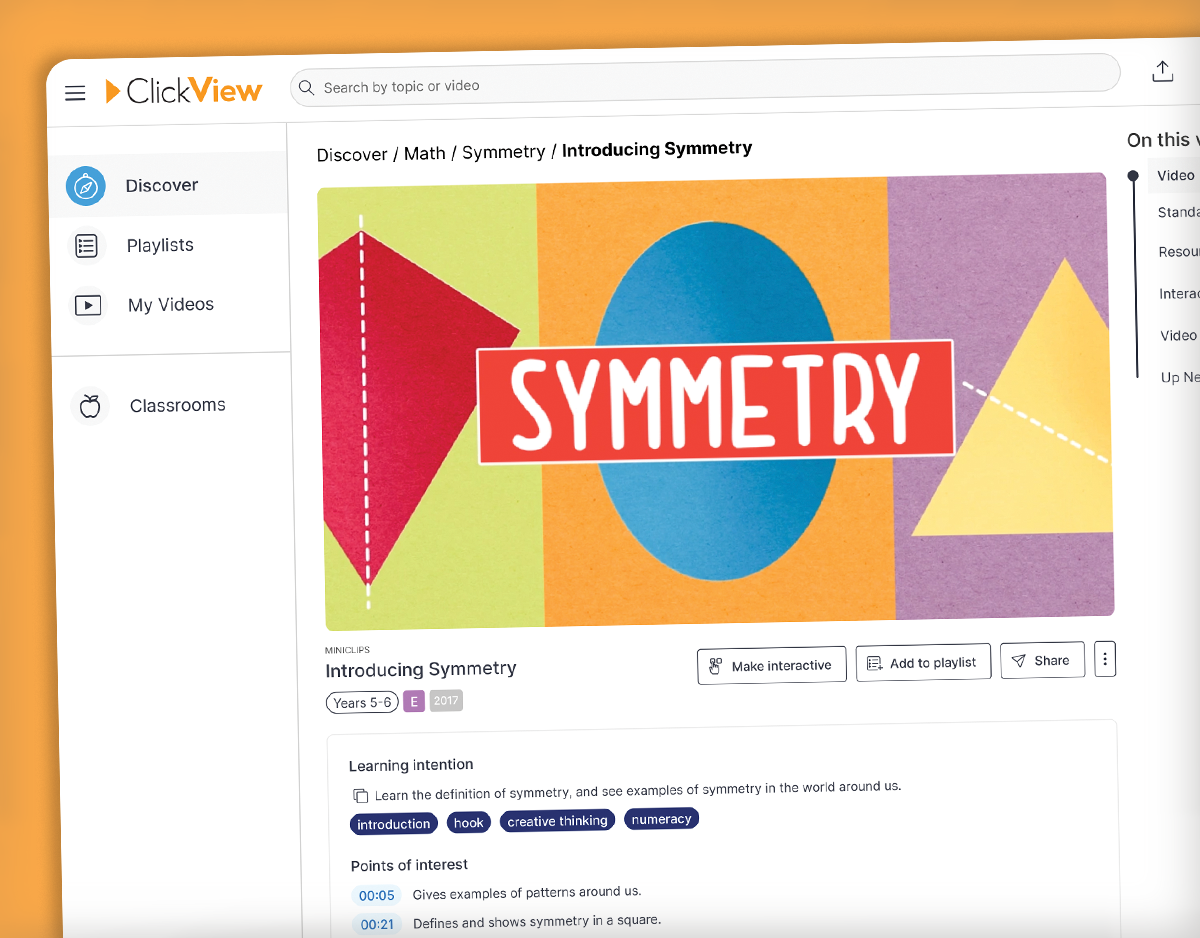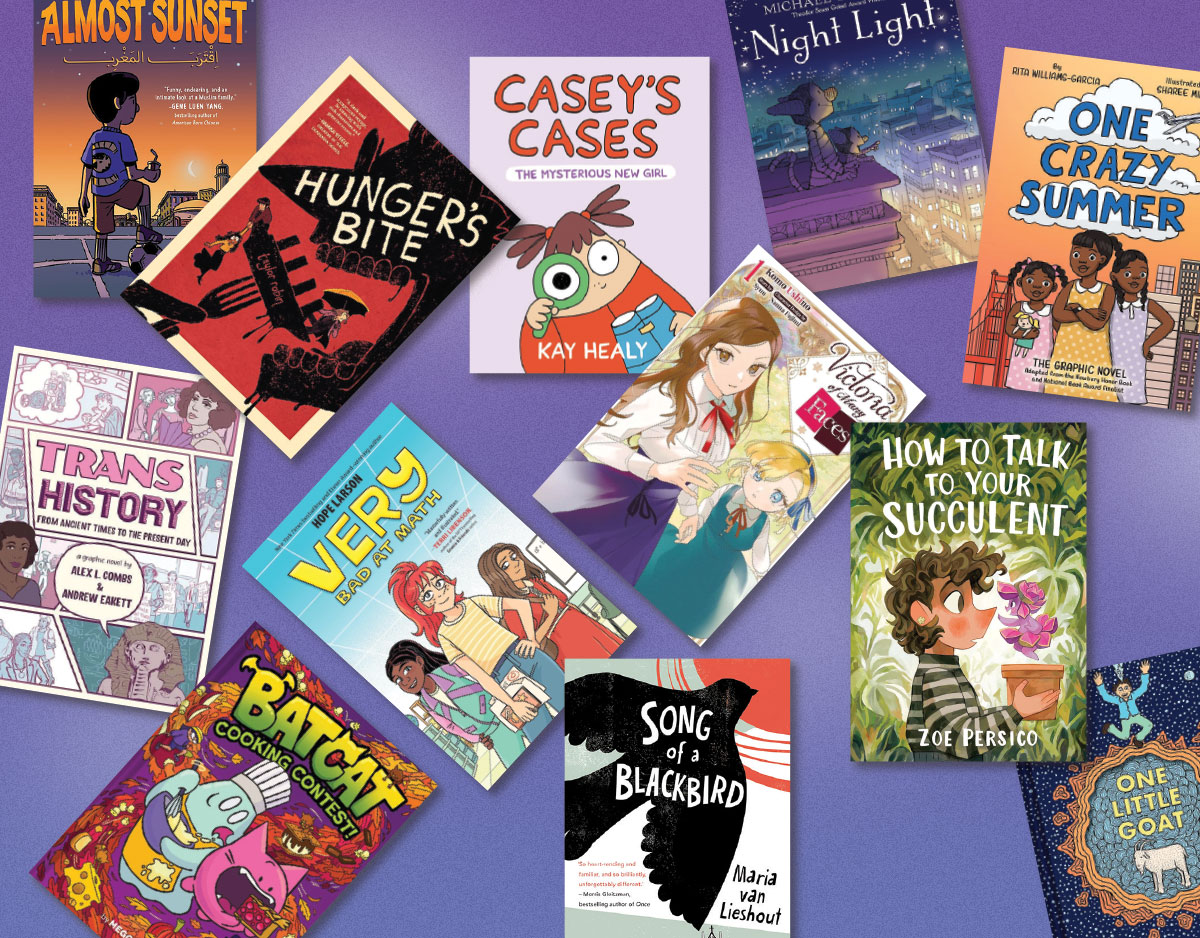SCROLL DOWN TO READ THE POST
The Curse of the Serial Book, or Why Series Titles Get No Lovin’
Looking back at Sophie’s rundown of series books that have been recognized by the Printz Committee over the years, a trend emerged that seems to draw a line between shared universe vs. truly serial works. By and large, truly serial works have only been recognized at series launch, with two duology conclusions and one single middle volume as exceptions, and that one volume is a verse novel, which may—by virtue of verse automatically leaving so much unstated—be a different animal altogether.
So let’s stand back and consider what we mean when we say “series,” and why genuine serial series books are at a disadvantage when it comes to being named the finest work of writing in any given year.
ADVERTISEMENT
ADVERTISEMENT
K: I tend to take the “series books can’t win” stance, but I don’t REALLY mean it, because I’ve always only meant it for the given value of “serial” when I say series.
As I see it, we say series a lot, but we mean many different things with that one word. Regardless of the flap copy or author’s website, does a single universe make a group of books into a series?
This came up in the comments discussion two weeks back: I pointed to Jellicoe Road as part of a “series” with Saving Francesca and The Piper’s Son. Others disagreed, but the connection between Jellicoe and Piper does not seem notably different from the connection between, say, The First Part Last and Heaven. The echoes between books may add an additional something, but it’s an Easter Egg—if you never see it, no harm is done to the book’s merits. I’d even go so far as to say that Saving Francesca and The Piper’s Son, which have many more of the same characters, are still more shared universe than serial series; reading them independently makes no difference, aside from the fact that you would know what happens in Francesca and Will’s future if you read The Piper’s Son first (but you wouldn’t have known to care, nor would you automatically assume you were missing something).
This is distinctly different from the more serial series—Harry Potter is a classic example of the serial series.
In that value of “series,” each book clearly builds on the previous book(s), and all together they make a single work. No one starting on the second or later volume could possibly be confused as to whether they were missing something: clearly, something is missing, and the work as a whole loses a lot, although it is still possible to follow the plot and get some of the depth.
Most importantly to me, the well done serial version of series ends up with a whole that is greater than the sum of its parts.
S: We spent a lot of time talking about this issue on Great Graphic Novels, and I’m a fan of the television comparison. Some series function like The Wire, where there are continuing characters and the situation as a whole is one big story, but each season (book) is essentially a reboot, looking at Baltimore from different perspectives. Other series work more like Buffy—you could start with season (book) two if you want to… but who does that? So much would be missing from your experience that you might as well skip the series altogether.
K: But what about the deeper story lines? Even on a show like Law & Order, where each episode is effectively its own book, there is a depth sacrificed if you don’t know that so-and-so is estranged from his or her kid(s), or has deep-seated anger issues, or whatever. Those small details are what build to create depth of character, and when we are talking literary quality—rather than mere readability—those details matter a lot, even if the plot is totally functional without the additional depth. Because it’s those bits that allow the whole to become greater than the sum.
S: Is it lazy of me to Kanye shrug here? Because a part of me wants to. Sometimes readability has to be enough. As librarians, we have to do our collection development without having read everything. Maybe that is similar to the way Printz has work, too? Those details are amazing, you’re right. I would never counsel someone to start The Wire with season 3… but sometimes that’s where you find yourself on committee work.
K: Let’s be honest: we—and the readers on the RealCommittee—are smart readers, and we can totally extrapolate from what backstory is provided to read a later book solo, especially when there are pressures of time.
The question I come back to is whether that book can be great—Printz great—out of context of the larger work. There are cases where the answer is yes and cases where the answer is resoundingly no (I’ll point here to Sarah’s favorite example, The Ask and the Answer). And I think the difference lies in the way in which the details and resonance matter and are dealt with—and that difference is often the shared universe vs. serial dichotomy again.
S: And now that you’ve brought up The Ask and the Answer, I cannot shirk an opinion. CANNOT! It’s my catnip, and I can’t not play with it, can’t not tell you how amazing it is and also how I can understand why it might not have been recognized in its year.
But, let me boil it down: readability can carry an honor, but not the Big Time Gold sticker.
This fact makes me sad. The Ask and the Answer is genius storytelling, it’s the Empire of that trilogy (not just because it’s the middle of the story, but also because it explodes the whole world into awesome). But it doesn’t stand alone, those details don’t resonate without the first book (and the last book, actually).
There’s an important character who just wouldn’t read the same—her decisions, her actions would be horrifying. Without the history the first book provides, it would be almost impossible to connect with her emotionally, and without that connection the book, and the series, would be thematically weaker.
Can we take our cue from television again? I’m thinking about all the different ways The Emmys work to recognize amazing serial storytelling. The Emmys have awards for shows as a whole. They also have awards for individual episodes. Maybe we need to have a couple of different kinds of ways to recognize serial storytelling, too?
K: Yes! Turner Award time.*
But back to the underlying question of whether a series book can or should take the Printz Gold, or at least the Pyrite—the silver is harder to really get worked up about, and there is precedent that it can happen, unlike the gold.
Here’s what I find myself thinking. It doesn’t matter what the P&P say. The fact is, when we are considering books for the Printz, we are only looking at the year’s publications. And it’s really hard to defend something that is essentially only one piece of a larger work (even if it’s a BRILLIANT larger work) as the hands-down best written book of the year. There’s just no way that a brilliant part two can really hold up next to a brilliant work that is complete in and of itself. Even if you take the new P&P and face value and discuss the smaller piece of the larger work in the context of its role in that larger series, albeit without discussing the other books, because they aren’t eligible, it’s as if you are comparing a chapter to a full book. In the end, I think this (rather than series bias,**** although there’s overlap) is what makes middle books sure losers when it comes to the Printz.
S: Even series openers can miss Printz gold by virtue of being a first book. If you know that there’s more story coming, that can really change the way you read a book. I’m thinking in particular of Froi of the Exiles here, but I’ll have a longer post to work that out this fall, so instead let’s focus on something like The Giver, which stood alone for a long, long time. It had an open ending that allowed for some really great discussions. Adding more to that story gave us definitive closure, but the fact is, it reads differently now that there’s a conclusion. When we’re talking about literary quality—not readability or pleasure—that openness and invitation to analyze and speculate and engage with the text so intensely can be a really good indicator of a powerful piece of literature.
K: Yes! With The Giver, what seemed like a brilliant exercise in allowing the reader to interpret that scene—reality or metaphor?—turned out to have been something else. It certainly changed my reading of the book, because it went from an ending that allowed analysis and rereading to a “to be continued.” I find it hard to place a “to be continued” alongside a finished and give the “to be continued” props for being better, because we just don’t know.
Series closers, on the other hand, can get a boost because they sometimes get the props for the work as a whole*****, but the fact that the two that have gathered honors concluded duologies rather than trilogies or even longer series indicates to me that we (that’s a pretty royal we there, encompassing every Printz Committee member ever…) have a harder time recognizing the final note of a really long work. In a duology, the book in front of you is half of the complete work. That’s actually still a lot of story, which may ameliorate some of the difficulty of recognizing a section rather than the whole.
S: None of this is a slam on series books—they can be such amazing reads. (They are the way I prefer to experience all my fiction, actually, in both TV and books. I am not a short story person.) Literary quality, though, works throughout a series. Very often, what makes a particular series special or noteworthy cannot be contained or even recognized in one single volume; it’s specific to the bigger context of the series itself. All that space, all those words can raise a story up into something that is larger than itself… but that’s just not what the Printz is about; it’s asking a fundamentally different question.
(Though now, of course, I’m prepared for RealCommittee to do us dirty and bestow a shiny gold sticker on some fantastic mid-series title! Ha!)
In the end, this is a question each RealCommittee must grapple with based on the books in front of them, published in their year. For our purposes, we may continue to say a book doesn’t stand alone, but when we say that, know that we’re just being lazy. What we mean is, something isn’t there in that one part of the larger work that feels necessary to raise that book to the throne. It might get to be in the court, but ultimately we don’t feel the best book of the year can be anything other than a complete work.
Until the book comes along that convinces us otherwise, of course.
ADVERTISEMENT
ADVERTISEMENT
So what do you think? Do you have a book you think does deserve to be the exception that throws all of this careful consideration out the window? Have at it!
*And now I have to play devil’s advocate and ask… do we risk watering down the YALSA “brand” if we hand out awards willy-nilly? The Printz is only 12 years old, it’s still gaining traction and recognizability. While I want our award system to grow with the YA field—which is doing awesome things—maybe keeping it simple is better?**
**I think it wouldn’t water anything down if it were like the Wilder—not every year, winner joins the Printz winners, etc. And since series take time to complete, maybe it’s given every three or even five years, and only series that were declared “complete” in the preceding three or five years can take the award (and once a series has been declared complete, that’s it, even if the author writes more books after all), and it’s only a win, no honors? Although a shortlist, like the Morris, would be a nice nod to recognize other notable works.***
***If only we ran the world.
****Which is not to say that genre bias doesn’t exist, but I don’t see it as the issue for series fiction; I think genre bias is deeper and not only specific to Genre books and deserves a post or three of its own, and hey, we still have a little time before September.
*****Return of the King, what?
About Someday
ADVERTISEMENT
SLJ Blog Network
Name That LEGO Book Cover! (#65)
Review of the Day: This is Orange by Rachel Poliquin, ill. Julie Morstad
Betty & Veronica: Summer Fun in the Sun | Preview
Heavy Medal Suggestions: 73 Titles and Counting
Like This, Try That: K-Pop Demon Hunters
The Classroom Bookshelf is Moving
ADVERTISEMENT
ADVERTISEMENT







